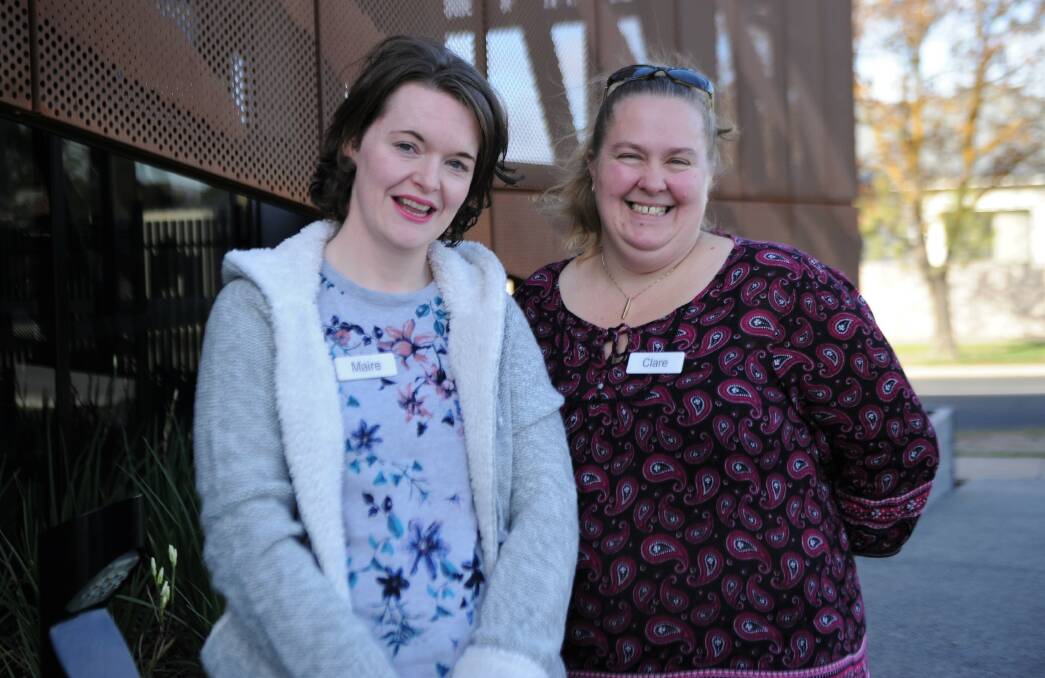
IT takes a special person to be a palliative care nurse, and Wimmera Health Care Group's Maire Coffey and Clare Petering are proof of that.
Subscribe now for unlimited access.
$0/
(min cost $0)
or signup to continue reading
Mrs Coffey is palliative care nurse practitioner, and Ms Petering is palliative care nurse and team leader. Both work at the new Wimmera Cancer Centre in Horsham, which opened in February.
Ms Petering has worked for Wimmera Health Care Group in the palliative care sector for more than three years. Prior to that she was a district health nurse for a decade.
"I was asked to come over to palliative care. At first I thought I'd be too emotional, but since joining the team I have absolutely loved it and I couldn't see myself doing anything else," she said.
"No two days are the same. We tackle whatever is handed to us and aim to make people feel as comfortable as they can."
Although there is only one dedicated palliative care bed in Wimmera Base Hospital's Oxley Ward, other beds can be accessed when needed.
"We are primarily community funded, but we still see patients in the hospital and nursing homes as well," Ms Petering said.
"We cover the Horsham municipality, and Hindmarsh, Yarriambiack and West Wimmera shires. So it's a total of 37,000 square kilometres that four nurses and one casual worker cover.
"For outlying areas we like to rely on using all the services available to us, including the district nurses. We provide assistance, support and education for them. If people are being cared for at home, we also provide education to family members and equipment."
She said moving into the new centre had made a difference.
"We were previously in the day centre building which was a much smaller office. Now we have another office which we're going to use as a quiet room suitable for close, intimate discussions," she said.
Besides from caring for patients, Ms Petering said her role often revolved around explaining what palliative care was to people who had a loved one with a terminal illness.
"Sometimes the most important thing for people is spending as much time with the family as possible. Then a lot of people want to make sure their loved one's symptoms are sorted so they're not suffering. Pain is one of the biggest symptoms we deal with," she said.
Mrs Coffey has worked in her current role for six months. However, she has a long history of working in palliative care and did her post-graduate degree in palliative care in Dublin.
"Previously I was an older person's nurse practitioner in the rehabilitation ward in Horsham, but when I heard there was a job in palliative care I couldn't say no," she said.
"I had worked previously at Cabrini in Melbourne as a clinical nurse specialist in palliative care. I wanted a change, so moved to the country and started working with older people."
Her current role involves intake processing and talking to people about the end-of-life services available.
"I'm often the first person people talk to about palliative care and that's sometimes a difficult conversation to have. It's good for the community to have discussions about palliative care and advanced end-of-life care early on," she said.
"One of the hardest parts is making sure both the patient and their family is happy."
She said the palliative care team was lucky to have the workers it did.
"Often the team members that we're working with are very good at listening to what people are saying rather than actually advising. Listening is a large part of the job because it's a really touchy time in people's lives," she said.
While you're with us, you can now receive updates straight to your inbox twice weekly from the Wimmera Mail-Times. To make sure you're up-to-date with all the news from across the Wimmera, sign up below.


